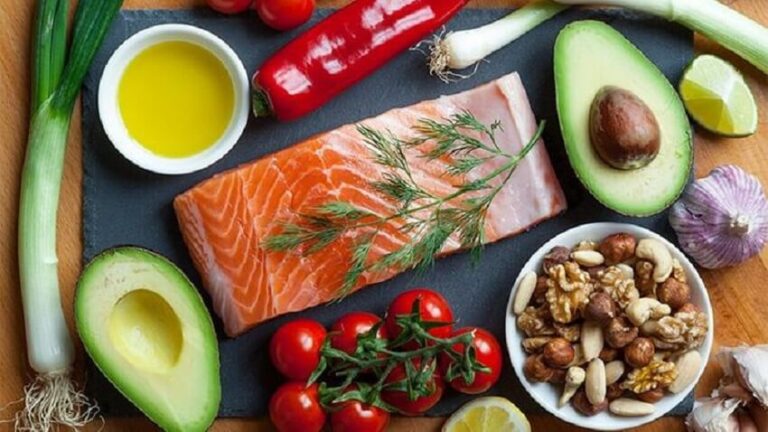The ketogenic diet, or keto, is a type of diet that is very low in carbohydrates and high in fat.
In its origins, the keto diet was created to control cases of epilepsy. Today, it is considered a method to lose weight quickly.
The keto diet is considered relatively safe for adults, particularly when it does not last for periods longer than 12 months, as long as healthy fat sources are included. (1,2,3)
However, studies state (3,4) that it is not the best diet method to lose weight in children and adolescents.
The following article reviews the effects of the keto diet as a treatment for children and adolescents; it is determined if it is suitable or not and what are its possible side effects and contraindications.
Keto diet for teens Yes or no?
Research has made it clear that one of the uses of the ketogenic diet is as a treatment for epilepsy and brain cancer. (5) In particular, when children and adolescents do not respond to medications.
The keto diet has been used in conjunction with chemotherapy to help treat certain types of brain cancer in adults, children, and adolescents. (6)
However, when it comes to losing weight, it is not the healthiest method. (2,3,4)
By eating virtually no carbohydrate foods, the body basically thinks it is in starvation mode. As you start using fat for energy, that’s part of the main reason it works for weight loss.
While you can lose weight quickly with the ketogenic diet, it can have side effects: decreased attention span, increased bad cholesterol levels, dehydration, and nausea. Also, if it lasts for long periods of time, it can cause malnutrition and a lack of vitamins and minerals.
In children and adolescents, having normal glucose values is important to improve the learning process, perform physical activities and develop social skills. Vitamins and minerals are necessary for physical and mental development at this stage of life.
In summary, the keto diet should only be used in children and adolescents in cases of epilepsy disorders or brain cancer, and always under the supervision of a doctor.
Side effects of the ketogenic diet
Like other low-carbohydrate diets, the ketogenic diet is contraindicated for people who take medications for blood pressure, have fatty liver syndrome, high levels of cholesterol and triglycerides in the blood.
The risk of side effects increases in children and adolescents, as their bodies are more susceptible. The main side effects of the ketogenic diet are:
- Digestive problems
- Hypoglycemia
- Dehydration
- Bad breath
- Fatigue
- Irritability
- Lack of vitamins and minerals
- High cholesterol levels
- Constipation
- Lower physical growth in adolescence
Before starting or pushing your teen on this eating plan, consult a professional nutritionist to establish a correct weight loss plan.
With the exception of its use as a treatment for epilepsy, most doctors and nutritionists do not recommend the keto diet for children and adolescents.
While more studies need to be done to corroborate its long-term side effects, preliminary research advises against using this method for weight loss, particularly at this stage. (4.5)
Healthy Eating Rules for Teens
If a teenager follows healthy eating rules, he can lose weight without side effects.
According to the WHO (7), one of the first rules of a healthy and healthy diet is diversity. If you eat the same type of food every day; sooner or later you will have a shortage of a certain vitamin or trace mineral.
In addition, the ideal balance of macronutrients (carbohydrates, proteins, and fats) for both children and adolescents should be 50:15:35. Instead of the typical 20 g of carbohydrates allowed per day on the keto diet, at least 130 grams is recommended; an amount almost 7 times greater.
For a teenager to lose weight in a healthy way, limit processed foods and simple carbohydrates. These foods are sugary sodas, candy, potato chips, desserts, and baked goods.
Sweet and processed foods are capable of altering the hormones leptin and insulin and causing an exaggerated feeling of hunger.
In a diet for adolescents, cereals and vegetables with a medium and low glycemic index should be the main component. Meats should be low in fat, preferably fish. Just like fruits, vegetable oils and berries should be a part of everything every day.
As a general rule, it should be understood that most natural, unprocessed foods are considered healthy foods. When a child or adolescent does not like this food, give the example, eat it, and offer it again.
This is the best way for teens to lose weight without going on low-carb diets like the keto diet.
ABSTRACT
- The ketogenic diet is a low-carb diet with rapid effects on weight loss. However, it is not the most recommended method for children and adolescents.
- The side effects of the keto diet can lead to complications in adolescence, for example hindering learning and growth.
- The use of the keto diet in children and adolescents should only be reserved as a medical treatment for cases of epilepsy and brain cancer, and always be carried out under the supervision of a medical group.







